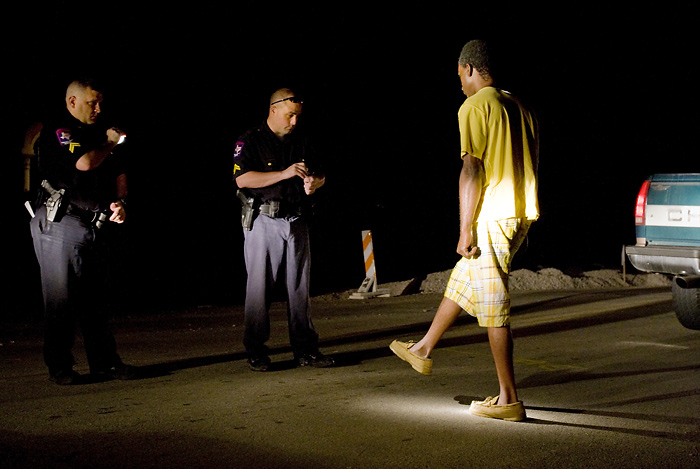
Field sobriety test
Drunk drivers who think they can evade the law by looking to certain smartphone apps might suddenly find a roadblock after all.
Apple has followed up its big iCloud news earlier this week with some revised guidelines for its App Store—and one of the most noteworthy changes is a crackdown on apps that make it potentially easier to avoid police DUI checkpoints and drive drunk.
Perhaps bowing to pressure from a number of organizations, along with a group of four U.S. Senators, the Silicon Valley company has now clarifies, "Apps which contain DUI checkpoints that are not published by law enforcement agencies, or encourage and enable drunk driving, will be rejected."
"With more than 10,000 Americans dying in drunk-driving crashes every year, providing access to iPhone and iPad applications that alert users to DUI checkpoints is harmful to public safety," the group (consisting of Senators Lautenberg, Reid, Schumer, and Udall) wrote in March, not mentioning specific apps but appealing to Apple to remove the offending apps from its store.
Independently, just a couple of weeks ago, Mothers Against Drunk Driving (MADD) also asked Apple and Google to remove DUI checkpoint apps—so the additional pressure might have had something to do with it.
The Apple decision applies to any devices on using its iOS system—including all iPad and iPhone devices. Several of the apps that will be removed from the store include databases of known drunk-driving checkpoints and hot spots, as well as real-time updates from other users who spotted a checkpoint. At the time, the only app that the Senators singled out was PhantomALERT.
Apps like Trapster, which help single out speed traps—yet still arguably have some functionality for sober law-abiders—are still fair game in the App Store.
The groups had also at the same time sent their letter to Google's Android Marketplace and to the Blackberry App World, yet the apps remain available on those platforms. However we may soon be facing more app takedowns, or more criticism, as common language to each disqualifies apps that "encourage illegal activity."
As we pointed out earlier this spring, apps are only part of the issue. In theory, Twitter or other social media networks could also be used to alert other drivers, and the root of the issue is to educate the public about the dangers—as well as deploy in-car breathalyzers.
[CNET]
